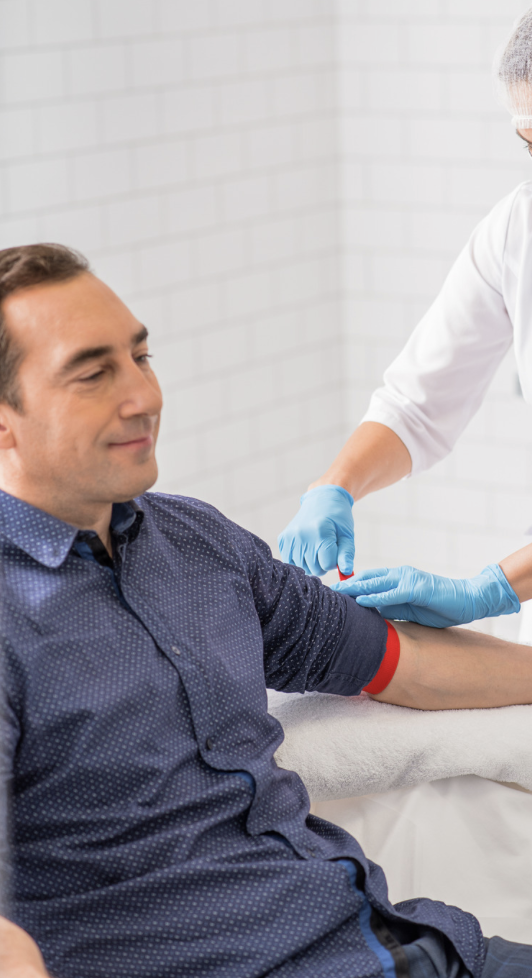Purpose:
The Testosterone Blood Test measures the level of testosterone in the blood, which is essential for diagnosing various health conditions.
Who Should Get Tested?
Recommended for individuals experiencing symptoms of testosterone imbalance, such as fatigue, decreased libido, muscle weakness, or fertility issues.
Preparation and Procedure
Before the Test: Fasting is not typically required, but follow any specific instructions from your healthcare provider.
During the Test: A small blood sample is taken from a vein in your arm with the help of a phlebotomist. The procedure is quick and usually takes less than five minutes.
Understanding Your Results
Normal Ranges: Varies based on age, gender, and health history. We always advise you to speak to your doctor. For more information, visit the NHS: https://www.nbt.nhs.uk/severn-pathology/requesting/test-information/testosterone#
High Levels: May indicate conditions like steroid use, androgen resistance or more serious conditions.
Low Levels: Could suggest hypogonadism, ageing, or other health issues.
Risks and Considerations
Minimal Risks: Includes slight pain or in some rare cases bruising at the puncture site.
Factors Affecting Results: Medications, health conditions, and even time of day can influence testosterone levels.
Follow-Up
Further Testing: Additional tests may be required for a comprehensive evaluation; follow your doctor’s recommendations or prescriptions.
Consult Your Doctor: Discuss your results with your doctor to understand what they mean for your health and treatment options.











